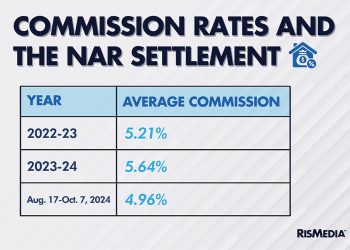Creating referral-worthy buying and selling experiences is what will both create and sustain your career as a luxury real estate agent. In the luxury home market, understanding the mindset of the wealthy is essential for creating these kinds of experiences since your clientele hold a largely different set of priorities than your traditional clients.
A forecast by Wealth-X estimates that total wealth assets in the United States will rise from the $31 trillion reported in 2018 to $46.2 trillion by 2020. With more wealth circulating than ever before, the wealthy have fewer limitations when it comes to spending on real estate.
Learning what motivates high-end buyers and sellers is key to providing them with the kind of service that will keep you top-of-mind when their colleagues ask for referrals when they’re looking to buy a luxury home in your market.
The Mindset of the Wealthy Values the Intangible Over Cost
Nearly a quarter of the country’s high-net worth individuals are in top management, and almost half have children under the age of 18, so when it comes to your services, they value ease, quality and discretion.
If you’re coming from the traditional market, cost is typically one of your client’s highest priorities. When you’re working with wealthy clients, it can take some practice to shift how you pitch and execute your services.
Given that ease, quality and discretion can be highly subjective, learning to ask the right questions up-front and getting to know what your client expects sets you up for creating a referral-worthy experience.
Creating Ease
Since ease is usually at the top of their list of priorities, establishing their preferred mode and schedule of communicating during your first meeting, or even as early as the prospecting stage, will save you and your client the frustration of playing phone tag. These clients typically have many people vying for their time, so it’s important not to take it personally if they’re not always prioritizing your services.
Creating Quality
Similarly, building a concierge-level network of vendors to anticipate the needs of your clients when (or before) they ask is another way to create not only ease, but a high-quality luxury experience for them. This means going beyond having a house painter, a handyman, lenders and the usual gamut, and creating a network of specialized vendors, such as Venetian plasterers, wine storage designers and installers, custom builders, outdoor kitchen installers and international tax attorneys.
Creating Discretion
Even some wealthy clients may be pushing their spending limits on a luxury home purchase. Rather than discussing their position outright, a smart way for luxury real estate agents to establish discretion up-front is to suggest that they prepare a verification from a financial institution in order to negotiate more effectively.
If you’re working with a high-profile individual who requires extra discretion, anticipate ways to preserve their privacy like scheduling private viewings, helping them set up an LLC to protect their identity and choosing properties that are built to provide extra protection.
The Wealthy Want to Work With an Expert
A luxury real estate agent’s job doesn’t end when you’re no longer face-to-face with a client. Deliberately creating time in your schedule to stay on top of what’s happening on a macro and micro level in your clientele’s particular luxury market is key to earning and keeping trust.
Beyond having a CLHMS designation, staying on top of inventory levels and the nuances among upper-tier properties such as a listing’s average days on market, the percentage of list price for which the property sold, the level of inventory within each price range and the number of sales by price range will wow your client to the point where they won’t think twice about referring you to other buyers or sellers.
 Diane Hartley is the president of the Institute for Luxury Home Marketing, a premier independent authority in training and designation for real estate agents working in the upper-tier residential market. Hartley brings her passion for luxury marketing and more than 20 years of experience growing and leading businesses to her role as president of the Institute.
Diane Hartley is the president of the Institute for Luxury Home Marketing, a premier independent authority in training and designation for real estate agents working in the upper-tier residential market. Hartley brings her passion for luxury marketing and more than 20 years of experience growing and leading businesses to her role as president of the Institute.












